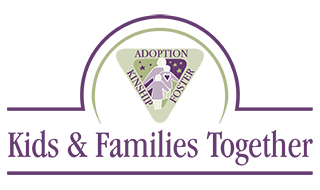Having Faith March 2017
Dear Faith,
My husband and I just adopted a seven year old girl who spent almost six years on and off with her birth family and several different foster families before she was placed with us and my husband and I adopted her. We have a ten year old biological child and this is our first child to join our family through adoption. We are committed to her. Recently, someone expressed to me the importance of claiming our child and I was wonder-ing if you could help me to understand what claiming means exactly?
— New Adoptive Parent in Simi
Claiming is the process between the parent and adopt-ed child that makes the child their own child and an equal member in the new family. A biological child has had the experience since birth of belonging to a family. Your new adopted child needs you to go out of your way to claim her as part of your family. She needs to have ongoing experiences that help her to know that you are her forever family.
Some simple ways to claim a child is to begin by placing pictures of your adopted child with other family pictures. It’s important to include pictures of the child’s birth siblings or other biological family members if these pictures are available. As the child learns his or her new family’s history, so should the new family learn and understand the child’s history. Often this includes painful memories for the child which can be difficult for the parents to hear, but it is the child’s story and must be accepted as such. A child that is old enough to remember previous homes, needs to be asked about her holiday traditions and family rituals and the adoptive family needs to incorporate some of this into their current home.
This claiming process can sometimes be difficult because the child may not look, act, or have the same interests as the adoptive family. Claiming occurs when parents begin to find similarities between the child and the new family and stop focusing on the differences, and accept the differences as part of the child. Adopting an older child is somewhat like a marriage where each person in the relationship must accept the other as a unique individual. Often due to challenging behaviors exhibited by the child, the new family might decide that the child placed with them is not a “fit” or decide the child didn’t want to be adopted rather than understanding that due to early losses in the child’s life, many children placed for adoption have significant problems with trust and the ability to attach to adult caregivers. For adoptive parents, claiming is the act of making the child yours no matter what. Parents who cannot make this commitment to the child early in the parent-child relationship are not likely to make this unconditional commitment at a later date. Basically, you either claim a child fully or you don’t claim them at all.
— Faith
 Kids and Families Together
Kids and Families Together